Tesla Stock Price Dives After Moody's Downgrades Credit Rating Over Model 3 Delays, Liquidity Concerns

Tesla has been Wall Street’s fair-haired boy as the electric car startup’s share price soared over the past few years. Production figures have not kept pace with Tesla’s market cap, and now problems getting assembly up to speed on the company’s vitally important Model 3 and concerns about its cash burn have resulted in a downgrade of its credit rating from Moody’s Investor Service. That report from Moody’s was issued late on Tuesday.
When trading began on Wednesday morning, Tesla stock opened at $264.76, down 5 percent from the day before. That is almost 14 percent lower than it was at the beginning of the week, and 31 percent lower than in September of 2017, when Tesla’s stock price apparently peaked at $385 a share.
Tesla’s overall credit rating was dropped from B2 to B3, which is six grades below investment level, and Moody’s said its outlook on the company is “negative.” Moody’s analyst Bruce Clark said, “Tesla’s ratings reflect the significant shortfall in the production rate of the company’s Model 3 electric vehicle. The company also faces liquidity pressures due to its large negative free cash flow and the pending maturities.”
Moody’s report went on to say, “Tesla’s ratings reflect the significant shortfall in the production rate of the company’s Model 3 electric vehicle. Tesla’s rating could be lowered further if there are shortfalls from its updated Model 3 production targets.”
The $1.8 billion in senior unsecured bonds that Tesla issued in August 2017 were downgraded by Moody’s from B3 to Caa1, well into junk bond territory — what the firm considers “very high credit risk, poor standing.” That resulted in a drop Tuesday evening of 3.5 cents on the dollar to 89 cents. At the time that debt was issued, demand was strong enough that Tesla only offered 5.3 percent interest, a record low for Tesla bonds. Now investors seem to be turning away from the EV startup.
The automaker continues to miss production level targets. Bloomberg estimates Tesla is now building about a thousand cars a week after saying that it would hit 2,500 units weekly by this time, the end of the first quarter of 2018. Tesla head Elon Musk predicted Model 3 production would hit 5,000 vehicles a week sometime this year.
In addition to failing to meet production goals, Moody’s said Tesla is facing financial hurdles. The credit rating agency claims the automaker will have to soon “undertake a large, near-term capital raise in order to refund maturing obligations and avoid a liquidity short-fall.” More than $2 billion will reportedly have to be raised by Tesla to meet those needs. The bonds in question mature in 2025.
Moody’s pessimism was echoed by Hitin Anand, senior analyst at CreditSights. “Why would anybody buy the bonds? There is just no reason to buy the bonds. You’re taking up equity-like risk and all you’re getting is a 5.3 percent coupon.”
Anand said that Tesla could possibly seek secured loans or issue notes convertible to equity in order to meet cash needs.
Tesla critics’ bleak forecast was countered by venture capitalist Jason Calacanis, who owns shares in the company (as well as a Model 3 he somewhat contradictorily claims to daily drive in self-driving mode). “Tesla is going to come roaring back,” Calacanis told CNBC. “Everyone who loves Tesla products can’t shut up about them because they are the greatest cars on the road.”
Greatest cars on the road or not, if Tesla cannot get production of the Model 3 up to anticipated levels, you can expect its credit rating and stock price to drop further.
[Image: Bloomberg]

Ronnie Schreiber edits Cars In Depth, the original 3D car site.
More by Ronnie Schreiber
Latest Car Reviews
Read moreLatest Product Reviews
Read moreRecent Comments
- Theflyersfan I used to love the 7-series. One of those aspirational luxury cars. And then I parked right next to one of the new ones just over the weekend. And that love went away. Honestly, if this is what the Chinese market thinks is luxury, let them have it. Because, and I'll be reserved here, this is one butt-ugly, mutha f'n, unholy trainwreck of a design. There has to be an excellent car under all of the grotesque and overdone bodywork. What were they thinking? Luxury is a feeling. It's the soft leather seats. It's the solid door thunk. It's groundbreaking engineering (that hopefully holds up.) It's a presence that oozes "I have arrived," not screaming "LOOK AT ME EVERYONE!!!" The latter is the yahoo who just won $1,000,000 off of a scratch-off and blows it on extra chrome and a dozen light bars on a new F150. It isn't six feet of screens, a dozen suspension settings that don't feel right, and no steering feel. It also isn't a design that is going to be so dated looking in five years that no one is going to want to touch it. Didn't BMW learn anything from the Bangle-butt backlash of 2002?
- Theflyersfan Honda, Toyota, Nissan, Hyundai, and Kia still don't seem to have a problem moving sedans off of the lot. I also see more than a few new 3-series, C-classes and A4s as well showing the Germans can sell the expensive ones. Sales might be down compared to 10-15 years ago, but hundreds of thousands of sales in the US alone isn't anything to sneeze at. What we've had is the thinning of the herd. The crap sedans have exited stage left. And GM has let the Malibu sit and rot on the vine for so long that this was bound to happen. And it bears repeating - auto trends go in cycles. Many times the cars purchased by the next generation aren't the ones their parents and grandparents bought. Who's to say that in 10 years, CUVs are going to be seen at that generation's minivans and no one wants to touch them? The Japanese and Koreans will welcome those buyers back to their full lineups while GM, Ford, and whatever remains of what was Chrysler/Dodge will be back in front of Congress pleading poverty.
- Corey Lewis It's not competitive against others in the class, as my review discussed. https://www.thetruthaboutcars.com/cars/chevrolet/rental-review-the-2023-chevrolet-malibu-last-domestic-midsize-standing-44502760
- Turbo Is Black Magic My wife had one of these back in 06, did a ton of work to it… supercharger, full exhaust, full suspension.. it was a blast to drive even though it was still hilariously slow. Great for drive in nights, open the hatch fold the seats flat and just relax.Also this thing is a great example of how far we have come in crash safety even since just 2005… go look at these old crash tests now and I cringe at what a modern electric tank would do to this thing.
- MaintenanceCosts Whenever the topic of the xB comes up…Me: "The style is fun. The combination of the box shape and the aggressive detailing is very JDM."Wife: "Those are ghetto."Me: "They're smaller than a Corolla outside and have the space of a RAV4 inside."Wife: "Those are ghetto."Me: "They're kind of fun to drive with a stick."Wife: "Those are ghetto."It's one of a few cars (including its fellow box, the Ford Flex) on which we will just never see eye to eye.



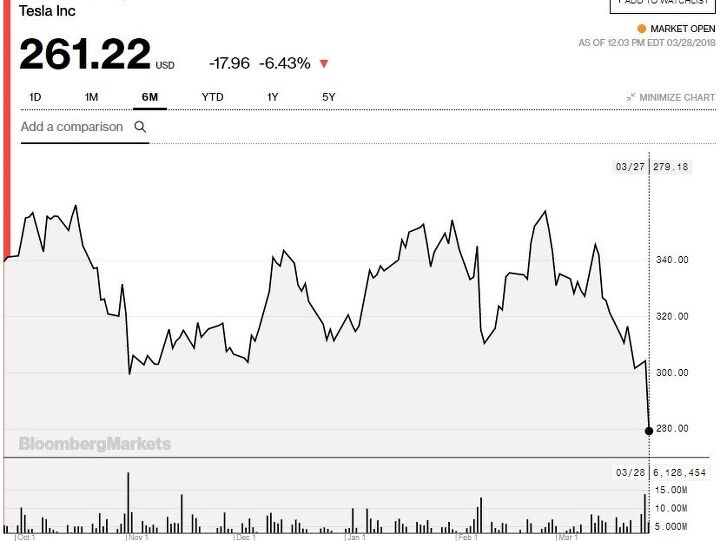


















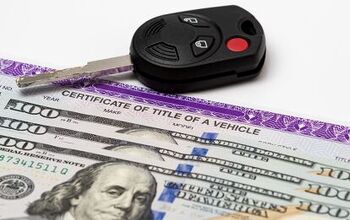





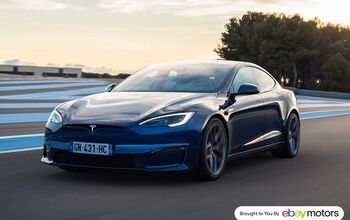
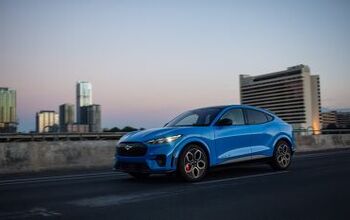


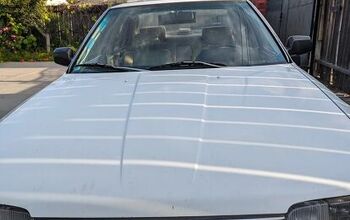

Comments
Join the conversation
The usually useless SEC may have sent a message to Elon Musk last week with the news they are going after Elizabeth Holmes of Theronos for "massive fraud"
Tesla investors should be worried. The competition is coming thick and fast. Jaguar are now attacking the Model X and the new electric XJ will go after the Model S. Tesla can trade off it’s Apple like status for a while yet but big boys are coming and will have them for lunch. Jaguar have already sold 20,000 I paces to one company. Soon they will really enter the publics mind and because the IPace is cheaper and better looking than the model X and let’s face it probably even more reliable I can’t help but wonder how long Tesla’s got to make a profit.